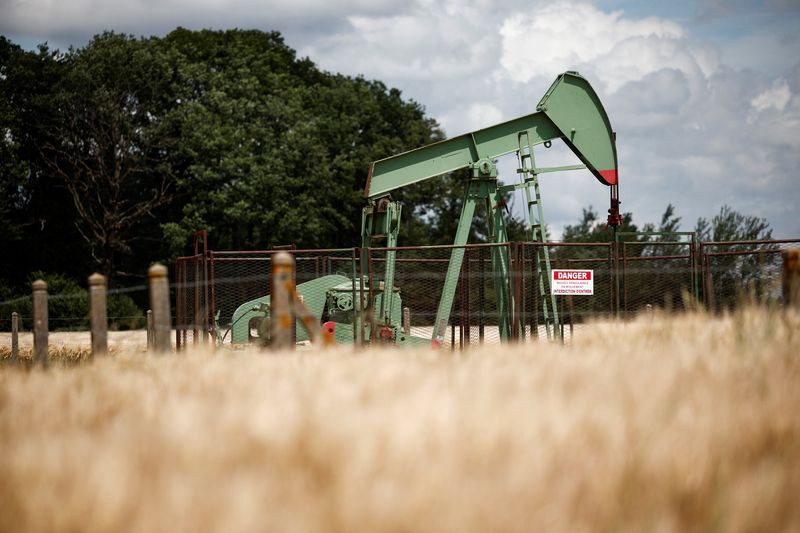Oil rises on fears about Lebanon, further OPEC+ supply cuts
By Shariq Khan
NEW YORK (Reuters) -Oil prices rose more than 2% on Thursday as Israel threatened to attack the Lebanese state if its truce with Hezbollah collapses, and as investors positioned for OPEC+ to announce an extension of supply cuts this week.
Brent crude futures rose by $1.68, or 2.3%, to $73.51 a barrel by 1:08 p.m. ET. U.S. West Texas Intermediate crude futures rose by $1.71, or 2.5%, to $69.81 per barrel.
Israeli forces have continued strikes against what they say are Hezbollah fighters ignoring last week's truce agreement in Lebanon. Top Lebanese officials have urged Washington and Paris to press Israel to uphold the ceasefire.
The risk to the ceasefire has some oil traders worrying more about tensions in the Middle East, UBS analyst Giovanni Staunovo said.
While the Lebanon conflict has not resulted in oil supply disruptions, traders will closely track tensions between Iran and Israel over the coming months, Staunovo added.
Also supporting oil prices, the Organization of the Petroleum Exporting Countries and allies will likely extend output cuts when OPEC+ meets on Thursday.
The group is likely to extend supply cuts until the end of the first quarter next year, four OPEC+ sources told Reuters.
OPEC+, which accounts for about half of the world's oil production, has been looking to gradually unwind supply cuts through next year. However, the prospect of a market surplus has pressured oil prices, with Brent trading nearly 6% below its average for December 2023.
"Given a rise in compliance with production cuts from Russia, Kazakhstan and Iraq, the lower Brent price level and indications in press reports, we assume an extension of OPEC+ production cuts til April," Goldman Sachs analysts said in a note.
The global oil demand outlook remains weak and China's crude imports are likely to peak as early as next year as demand for transport fuel begins to decrease, researchers and analysts said.
Saudi Arabia, the world's top exporter, is expected to cut crude prices for Asian buyers to their lowest in at least four years, traders said on Monday.
Source: Investing.com
